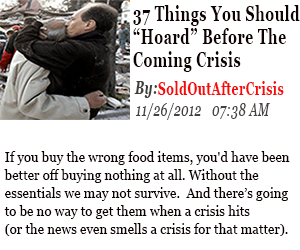
Middle-class families in America are seeing their incomes stagnating as they are squeezed by the ultra-rich taking a bigger slice .The middle classes are squeezed and aggrieved. Once the lynchpin of developed economies, the socio-economic grouping is now threatened by job losses and stagnant wages.
Net worth data from the Federal Reserve suggests that the “left-behind” contagion has spread to all Americans aside from the top 10 percent. While still wealthier overall than most other groups, even the upper-middle class is feeling the pinch of income stagnation. The growth rate of this group’s incomes is lagging behind that of those both lower and higher on the socioeconomic ladder. The cost of many products and services the upper middle class buys, from autos to college educations, is outpacing overall inflation. While having access to credit, these households are increasingly tapping into costlier forms of debt.
All of the economic collapses in the US over the last 40 years have had several things in common: Massive tax cuts were enacted that benefited the rich and the corporations Working Class wages remained stagnant, even though deficits caused by tax cuts for the rich, increased the national debt Increases in the national debt went unaddressed so that the politicians who enacted the tax cuts that caused the increases in the debt, could fool the public into believing that tax cuts were good for them. In some cases, the policies of tax cuts for the rich, which are the basis of an impending economic collapse, were accompanied by increases in military spending, and indeed, increase armed conflicts involving the U.S. Whenever these conditions are present, the potential for economic collapse becomes almost inevitable.
An America that spends half of the federal taxes on warfare, ignores internal infrastructure so that it now requires an immediate $4 trillion infusion just to halt the decay, ceased taxing the rich at the tail end of the 1970’s which coincides perfectly with the rapidly increasing inequality and that no longer taxes corporations nearly as much as it once did cannot possibly maintain equilibrium. All the right-wing darling causes are pulverizing the nation, and just servicing the massive foreign debt is soaking up a vast amount of the tax income. But people still want to live decent lives, so they go into debt, and the death spiral is on. There’s little mystery why the U.S. is crashing while the rich are getting obscenely wealthy.
What’s hard is figuring out how to fix it, when even a center-right conservative like Barack Obama is called a “socialist” by the right-wing lunatics.
There is no problem. More and more and more money printing is on the horizon; it will never stop. We will print money until everyone is a billionaire, and a gallon of gas will be a million dollars. Have faith the bankers and congress know what they are doing Eventually, we will default on everything due to NO jobs and the self-importation of 20,000,000 poverty level people and the displacement of 10,000,000 US Domestic Jobs.
Who now owns all the land and houses that were defaulted on during the real estate crisis? We are becoming a FEUDAL STATE! Robert Reich’s documentary “INEQUALITY FOR ALL” lays this out for all to see. Great inequity occurs before each significant crash. It was right in 1929 and in 2008. When corporations and CEO’s suck the life out of the middle class, it sets in motion all the indicators for the economic and financial decline. Personally, I’ve been watching this since the mid-1980s – its a question of when it all crashes totally, like watching the sea nibbling away at some coastal ruin.
Ron Paul ! Financial Martial Law In Progress! Prepare Yourself! Undeniable Proof!
There are “good” seasons and worse, but inexorably the sea is back gnawing away. Money is not an endless commodity; you can’t just print more of it whenever you need it because that causes inflation, the money only becomes worthless, so you don’t really gain anything, in fact, it hurts everybody, even the wealthy. The net value of the money stays more or less the same. Most of the wealth in the United States belongs to only a few people. That means that the great mass of people has to share what is left over. There is not enough money to go around; companies can’t pay higher salaries to workers because there isn’t the money to do it, it’s all going to the rich people, probably the ones who own or run the company.
So how do you fix this? You stop giving massive tax breaks to the wealthy at the expense of the middle class. We start valuing hard work and paying the people who actually create the products a reasonable wage. We fix it so that the only way you can make money isn’t sitting behind a desk and planning how to screw the average worker. I’m not optimistic, I don’t see any of this happening, but we could make it happen if we really get out and vote for what’s in our interest, and not the interest of the politicians and their cronies. Don’t let them give the top few an 800 billion dollar tax cut, at the cost of healthcare for regular citizens. If we don’t do it now, we will probably never get a better chance to do it . We, the middle class of America, are living under a draconian dictatorship who have declared financial martial law on us. We must rebel-NOW!!! The baby-boomers took their lumps and choked on the tear gas in the 60s for what did result, for a brief time, in an improved society. The government made sure that would not be allowed to happen again.
Too bad Presidents F Roosevelt and H Truman’s cry for ‘Freedom from Want’ was not enacted as they’d planned. (Instead, we got war-criminal Ike.). Ah, I guess they’d still do their dirt anyway. We are bent but not beaten. But we absolutely need to rise up and fight. The government and the corporations are NOT going to stop with their greed just because we don’t like it. We need to wrest power away from them!
Preparing for Economic Collapse
WHAT SHOULD I DO? How can I prepare for an economic collapse? is one of the most common questions I get. It usually takes me a second to start to explain how complex such a question is. It’s like asking an auto mechanic, Say, how do you build a car? or asking a computer engineer, What’s all that stuff inside my laptop?
I do have some first-hand experience in this matter, though. The economy in my country, Argentina, has gone through various crises, but none as large as when the economy collapsed in 2001 after a decade of apparent prosperity. The currency devaluated, and Argentina defaulted on its USD$132 billion debt, the largest default ever. The middle class took to the streets after bank accounts were frozen, and the president was forced to resign, escaping the presidential building in a helicopter.
What I’ll do is provide five quick foundational steps, based on what I know, for you to follow so as to be better prepared if something like what happened in my country ever happens in yours.
Steps for Greater Resiliency
Step #1: Secure a percentage of your savings in bullion.
Five years ago, even the most paranoid person claimed that you would never see “nationalized” banks in the USA. The gung-ho survivalists claimed the entire country would go up in flames and open revolts would start before something as insane as a $700+ billion bailout to save the “too big to fail” rich elite was laid on the backs of the American working class. Yet here we are.
When I try to explain this very important issue to my American friends, they tell me that banks would never steal people’s money because there are laws against that in the USA; their money is insured. We had those same laws in Argentina, but still it happened. We had a constitutional right to private property. Yet the constitution mattered little during the collapse. Go right ahead – sue the government of the United States if something like that ever happens. Maybe you’ll get some of your savings back in a few years. If they feel like returning it.
What people don’t understand is that laws are written by men, not some greater power. As soon as those running the show feel an emergency decree or law is in order, existing laws are simply rewritten. They may even be ignored altogether! What do you do if something like that happens? You may complain, you may sue, but you’re not changing the cold hard fact that as of right now, that bank door is closed, that ATM has no money in it, and you still have to survive. This is something Argentines have experienced and know very well. Hundreds of thousands of us have banged the doors of our banks for years without a penny being returned. You still sued, and waited, and spent the little money you had by hiring a lawyer. You lose, they win…unless you have some of that money at hand before they decide to steal it.
Every single Argentine wishes he could go back in time, close his bank account, and put that money into gold. We would all do that if we had a time machine. Since you can’t guess the future, all you can do is estimate what can happen and play the odds in your favor. In the event of a full economic collapse, if you have 20% of your savings in physical gold and silver, that’s a percentage of your savings that is spared. It’s not an investment; don’t go crazy over gold and silver going up or down a few dollars. Just be content that it’s not getting any lighter as it sits in your safe. If the economy collapses or even if there’s simply inflation (as there clearly will be), that percentage of your savings in precious metals is safe and will likely go up in price beyond its standard purchasing power as things get worse.
During the first stages of a severe economic crisis, you will see ATMs running out of money fast, and many stores won’t be accepting credit cards. As the saying goes, “Cash is king” during those times. Your precious metal can be sold to a dealer, but you better keep that stored for now. When everyone is running around looking for an ATM with a few bucks in it, having a month’s worth of expenses in cash means you won’t be one of them. Why not more than a month´s worth of expenses? Because if the economy fully collapses, that paper money will lose its value within hours. It may drop 50%, 60%, or 75%, as happened in Argentina. Who knows? All you know is that as the currency loses value, the value of the precious metals you have stored goes up in proportion. Still, during those first days, a wad of cash gets you what you need.
So, Step #1 is acquiring precious metals (I generally recommend 20% of your savings but each person is a separate case) and a month’s worth of expenses in cash, kept safe at home.
Step #2: Stock up on food.
The more you have, the better. There may be periods of civil unrest like the ones we saw where stores are being looted and closed after that. There may be problems with resupply because of logistical complications. It’s better if you already have 6 to 12 months worth of food in your expanded pantry. Also, keep in mind that the food you buy now will be considerably cheaper compared to post-inflation prices.
This large supply of food will bring peace of mind in case of job loss, as well. Who knows how long it will be before you find another source of income? After the 2001 collapse, some people genuinely spent YEARS looking for a job without finding any. I can’t emphasize enough the peace of mind it brings knowing you still have some time, and that you can, in fact, put food on the table the following night.
The food should be long-term storage type, requiring little or no cooking, at least for some of it. Water is also essential, so having a two-week supply is advised. The minimum amount is a gallon per person per day, and you should double that for flushing toilets and taking an elemental bath in case the water service is interrupted.
Step #3: Acquire the essentials by putting together a survival/emergency kit.read more
This will include your typical camping gear: a tent, sleeping bags, a stove (have enough fuel for it in case services are disrupted), first aid kit, medicines, LED flashlights, and several spare batteries. Depending on how bad civil unrest gets, there may be problems with the infrastructure. After the economy collapsed in Argentina, the power company simply couldn’t afford the repairs needed, and it hadn’t planned for something like this. Rolling blackouts became common, and having LED lights and rechargeable batteries was a blessing. You could easily spend two or three days without power during the summer. At one time, downtown Buenos Aires was left without power for five days. Imagine the complications this brings. If natural gas service is interrupted, you may need other ways of cooking. A camping stove and enough fuel will get you through it.
Step #4: Improve your personal and home security.read more
If you ask any Argentinean what concerns him the most, 9 out of 10 people will have the same answer: security. In second place is the economic situation. Ten years after the economic collapse, things are nothing like they used to be. Half of the middle class became poor and its standard of living has decreased considerably. We’re still a high-risk economy, and it shows. Inflation is still rampant and can be anywhere from 5% to 10% per month, usually hitting the middle class the worst. But that’s something we’ve grown used to. That’s something we can live with.
What concerns Argentineans the most is the crime problem, and the out-of-control violent crime we suffer is the major legacy of the 2001 economic collapse. Poverty sure didn’t help, nor did social segregation. But the greatest cause responsible for the crime levels we suffer is our own government. The liberal government that took control after the collapse considers criminals to be poor victims of brutal capitalism. The unofficial stance is that criminals have a right to steal, murder and rape – in their view, it’s how the “poor” get back at the rich and middle class who thrived during the 1990s. Of course, with a government like that, the crime problem just keeps getting worse.
During the first days after the economy collapsed, civil unrest, rioting, and looting were out of control. A state of siege and military law was declared, enforcing curfew hours after 10 pm. This lasted a few months, and for months after that, while order was recovered in the capitol district, there were still occasional revolts and looting. The sense of lawlessness extended way beyond the visible accounts depicted by the TV and general media. It’s during times like these that you realize you must have means of defending yourself and your family.
My advice is to make your home as secure as possible against criminals that may take advantage of the lack of control during the worst of the rioting. After that, a better security plan for the entire family must be worked out. As things get worse, you understand that you can no longer afford to be lax about your personal and home security. Those that are quickly become vicitims. With a more secure home, you may want to consider having a weapon to defend yourself. Certainly not an easy decision, and one you must be extremely serious about. If you have the self-control and maturity to handle one, having a firearm and getting the minimum training to know how to use (it if it ever comes to that) is something you should consider doing.
Crime and insecurity will be one of the greatest threats people all across the USA will suffer, and very few will be ready for it. It won’t happen one dark gloomy night after watching the latest horror movie. It will happen in the Walmart parking lot at 3 pm, with plenty of people around (people who will hurry out of the way, pretending not to see anything). You’ll be thinking about what you just bought, that you maybe should have bought Lucky Charms instead of Corn Flakes. That’s when the nice-looking person with two other buddies, all well-dressed (with neat haircuts, too), will pull a gun on you. Developing a sense of awareness will be the most important part, as well as making the rest of your family comprehend that times have changed and you can no longer be careless regarding security.
Step #5: Embrace a different mindset.
When Argentina went through its economic collapse, people handled it differently. Maybe the most common response was denial. The “I can’t believe this is happening “ attitude was pretty popular. Others complained, but you soon understood that it changed nothing: It only made you feel more miserable, more stressed, and that was something you could do without. Others just ended their misery. Suicide rates doubled after the collapse, with people sometimes jumping under the train at early rush hour in a desperate attempt to make their misery noticed by others.
What you need to do is become more positive, more active. Be someone who, while accepting those things you can’t change, does something about the things you can. Get involved now. Do what I just recommended right now; it will bring you peace of mind. Remember to stay positive and put every problem into perspective. Complain less. You’ll have enough to complain about when inflation gets worse. Soon you’ll understand that material things can be replaced, and you become more grateful for what you have instead of worrying about what you don’t.
It’s essential to keep a positive attitude. Being someone who gets easily depressed will be the end of you as the economy worsens. Problems much worse that what you are used to will be a daily occurrence. You’ll just have to roll with it and learn to cope with the new world you live in. Reinforce your relationships with people. Fight stress by finding a hobby you enjoy, hopefully one that has a practical side as well. After the collapse, lots of people started their own businesses when they realized there were no jobs to be found. It would be better if you get started now, just in case you ever need it in order to earn a living.
These are my recommendations. I know many people could have used such advice back when our economy collapsed.
Some common questions regarding hyperinflation read more
How quickly does it happen?
These events occur fast, but there are warning signs: lack of investment, higher interest rates, unemployment. When banks start coming up with excuses so as to not give you your money right away when closing an account, that’s usually not a good sign.
As for inflation and hyperinflation, they happen right in front of your eyes. It actually happened to me that the price of an item I picked in a store almost doubled in price by the time I reached the cash register. The employee just placed the sticker with the new price over the old one (no time to remove them) Employees rushed around changing prices several times a day, all day long, during the ongoing crisis. It was fun to peel back the stack of stickers with the different prices and see how they had gone up in a matter of hours. Rioting happens fast, too. Once the banks close, rioting is just minutes away.
What happens to your savings/investments?
I didn’t have much but managed to close my account just a day before the banks closed their doors. My parents are accountants and saw the signs mentioned earlier. When we went to the bank, a nice lady told us they didn’t have USD$1,000 in the bank. Our jaws just dropped. That same day we went to the main branch and closed the account my sister and I had. The next day all banks closed and the accounts were frozen.
As for real estate, that was a pretty safe investment. Eventually rents went up to compensate for the devaluation. Of course, you were much better off with your money in bricks and mortar than in a bank account.
How does the populace react?
Violently, as you’d expect when your life savings are stolen from you.
What is the government saying/doing?
Laws were changed to make everything nice and legal. The excuses then-president Fernando De La Rua came up with in his speeches during the crisis just made everything worse.
Just days before the bank holidays, they promised none of that would happen. Same thing before the devaluation. They swore on their mothers’ names that they wouldn’t do such a thing – then did it the following day. Politicians tend to do such things, and they are all similar worldwide.
What happens to the capital markets?
The stock market dropped like a rock, then shut down. What surprised us the most was how everything was simply frozen in expectation. No one wanted to spend a single cent, not even to buy half gallon of paint for a work site, because you just didn’t know what would happen in a matter of hours, let alone next week. The biggest investors had sold and left the country months before everything went down. Another sign to look for.
Does violence and crime become an immediate concern?
Yes, it does. While stores were the more common targets, houses were looted, too. The best thing to do was stay home, have a defendable position, and be armed. I had looters not 20 yards away from my home. What do you do if they rush your home? Can you just open fire on them? What will they do when/if you do? All these things flash into your mind.
A significant amount of people behave themselves because they believe there’s a punishment if they do otherwise. Once that fear is removed, because the authorities have clearly lost control, you see the worst of people’s nature. It’s not a pleasant thought, but it’s better to be ready.
There is still time for you to prepare, but you have to start learning how to make your own survival foods as soon as humanly possible. The best way to do it is to get the inside scoop on how to do it right. Fortunately, there is a way to get twenty years worth of The Lost Ways. This new food storage system is called The Lost Ways. You do not need a lot of expensive equipment to store foods for a crisis using the methods taught here. Even better, The Lost Ways pays for itself quickly as you begin to put away garden produce or even meats that you buy on sale. For most folks it’s simply the biggest bargain of their lives. You can finally become self-sufficient and any extra money saved in food expense goes right back to your pocket. Frankly, at the end of the day, The Lost Ways actually makes you money! What’s more, the videos take you by the hand, step by step, through the entire process of “putting away” almost any food you can think of. It’s very much like having a food storage professional right there with you every step of the way.

Books can be your best pre-collapse investment.
Carnivore’s Bible (is a wellknown meat processor providing custom meat processing services locally andacross the state of Montana and more. Whether your needs are for domestic meator wild game meat processing)
The Lost Book of Remedies PDF ( contains a series of medicinal andherbal recipes to make home made remedies from medicinal plants and herbs.Chromic diseases and maladies can be overcome by taking the remediesoutlined in this book. The writer claims that his grandfather was taughtherbalism and healing whilst in active service during world war twoand that he has treated many soldiers with his home made cures. )
Easy Cellar(Info about building and managing your root cellar, plus printable plans. The book on building and using root cellars – The Complete Root Cellar Book.)
The Lost Ways (Learn the long forgotten secrets that helped our forefathers survive famines,wars,economic crisis and anything else life threw at them)
LOST WAYS 2 ( Wordof the day: Prepare! And do it the old fashion way, like our fore-fathers did it and succeed longbefore us,because what lies ahead of us will require all the help we can get. Watch this video and learn the 3 skills that ensured our ancestors survival in hard times offamine and war.)
Survival MD (Best Post Collapse First Aid Survival Guide Ever)
Conquering the coming collapse (Financial advice and preparedness )
Liberty Generator (Build and make your own energy source)
Backyard Liberty (Easy and cheap DIY Aquaponic system to grow your organic and living food bank)
Bullet Proof Home (A Prepper’s Guide in Safeguarding a Home )
Family Self Defense (Best Self Defense Strategies For You And Your Family)
Survive Any Crisis (Best Items To Hoard For A Long Term Crisis)
Survive The End Days(Biggest Cover Up Of Our President)




